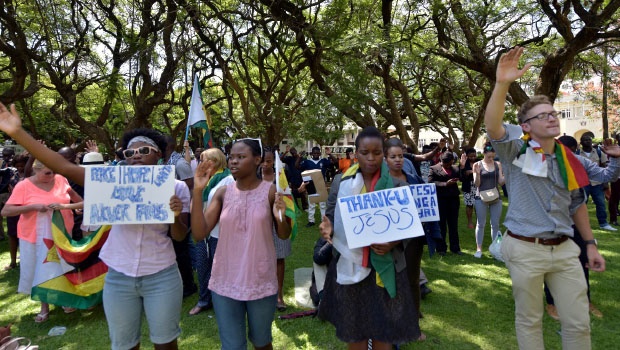Some Zimbabweans dared to hope that the fall of long-time authoritarian leader Robert Mugabe a year ago would finally bring change after years of economic decline, corruption, and repression.
But the last 12 months have been tough, with few signs of Zimbabwe emerging into a new era.
Hyperinflation economics
Consumer prices last month rocketed at their fastest pace since hyperinflation a decade ago, with annual inflation hitting 20.9%, and many Zimbabweans saying the real rate is far higher.
Daily life struggles
Shortages of everyday essentials such as bread, chicken, cooking oil, and petrol have worsened since Mugabe’s fall, as the country runs out of foreign currency to buy imported goods.
Long queues outside petrol stations and empty shops have become regular sights, while medicine supplies have also become scarcer and far more expensive.
Same old politics?
Mugabe’s Zanu-PF party easily won the July election, holding firm control of the parliament.
The party’s leader Emmerson Mnangagwa, who succeeded Mugabe, won the presidential race with just over 50% – narrowly avoiding a second-round run-off against Nelson Chamisa of the main opposition MDC, which said the result was fraudulent.
A habit of repression
Mnangagwa promised a free and open Zimbabwe after the Mugabe years, but political opponents, protesters and activists still face a repressive regime.
On August 1, security forces opened fire and six people were killed in Harare during demonstrations as election results were delayed. MDC party members have been routinely harassed and government critics targeted, though the government denies involvement.
International funds still blocked
Zimbabwe must clear its arrears before it can raise more loans needed to re-build the country. With a total debt of $16.9bn, it says it will clear almost $2bn of arrears with the African Development Bank and the World Bank by October 2019.
But continuing targeted US sanctions, which remain in place due to lack of reform, could block fresh loans.
Source: AFP



